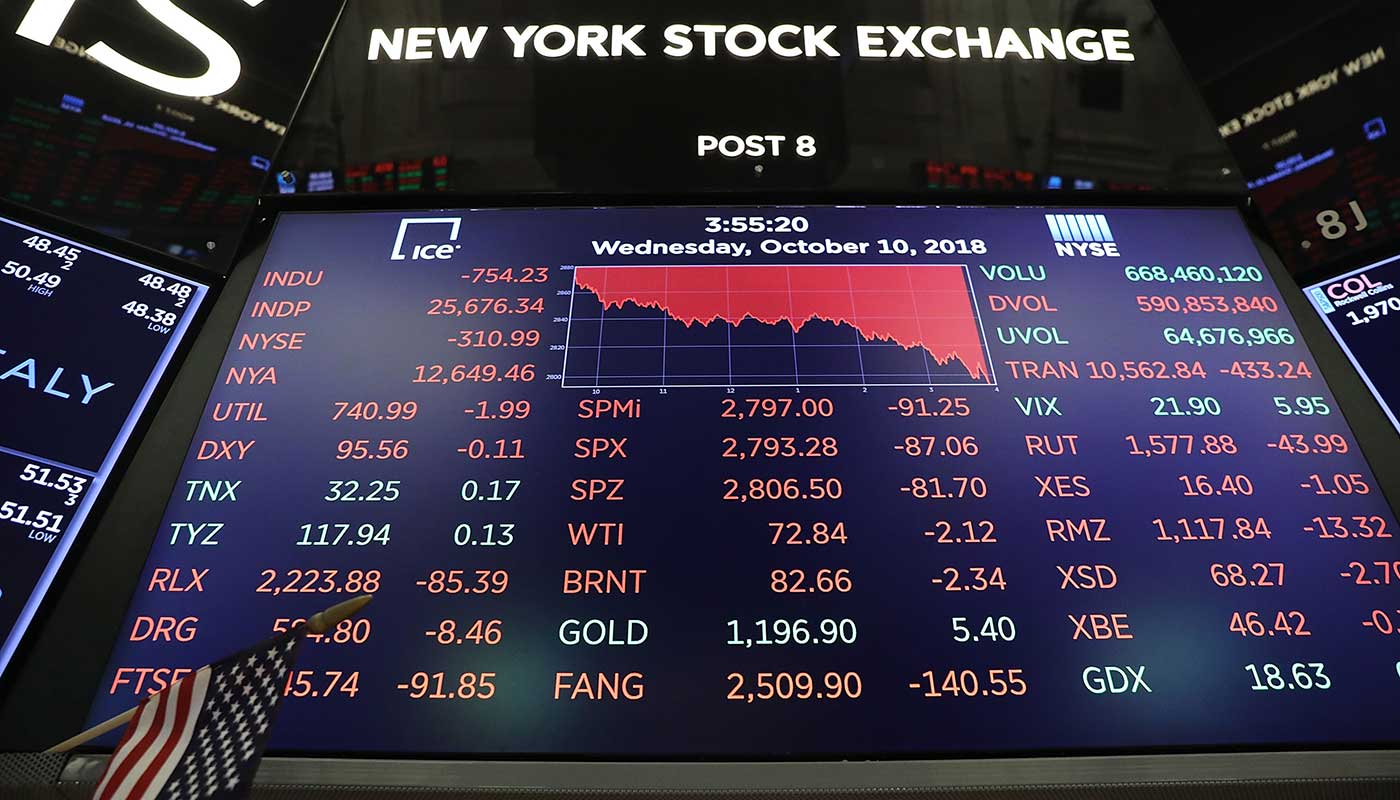Is a Covid-19 global recession now inevitable?
Eurozone shrinking as US GDP falls at sharpest rate since the 2008 financial crisis

A free daily email with the biggest news stories of the day – and the best features from TheWeek.com
You are now subscribed
Your newsletter sign-up was successful
Economists are predicting a deep global recession after official data shows that the US experienced its worst first-quarter GDP fall since the financial crisis a decade ago.
The American economy shrank by 4.8% in the first three months of the year, a sharper fall than the 4% forecast by analysts.
The Times reports that the fall comes amid warnings that Europe’s largest economy, Germany, is “on track to fall into its worst recession since the end of the Second World War”.
The Week
Escape your echo chamber. Get the facts behind the news, plus analysis from multiple perspectives.

Sign up for The Week's Free Newsletters
From our morning news briefing to a weekly Good News Newsletter, get the best of The Week delivered directly to your inbox.
From our morning news briefing to a weekly Good News Newsletter, get the best of The Week delivered directly to your inbox.
“Taken together,” the paper adds, “the numbers paint a gloomy picture for the global economy”.
What do the numbers say?
After a decade of near continuous growth, Germany’s economy ministry has sharply downgraded its growth forecasts for the present year from 1.1% to -6.3%.
Peter Altmaier, the German economy minister, said: “We will experience the worst recession in the history of the federal republic.”
A free daily email with the biggest news stories of the day – and the best features from TheWeek.com
The Guardian reports that Germany’s economic woe is in keeping with the wider eurozone economy, which fell by 3.8% in the first quarter of 2020, putting it halfway into recession.
“The wider EU economy also suffered badly, with GDP shrinking by 3.3% during the quarter,” the paper adds.
France has already sunk into recession, with data showing the country’s GDP contracted by 5.8% in the first three months of 2020, “the worst contraction since the Second World War”, according to the Guardian.
Italy is also in recession, with GDP shrinking by 4.7% in the first quarter of 2020. Nicola Nobile, senior economist at Oxford Economics, said that this puts Italy’s economy at its lowest level since the early 2000s, meaning the pandemic has wiped out all Italy’s growth since the eurozone crisis.
Spanish GDP contracted by 5.2% from January to March compared with the previous quarter, according to new figures from the nation’s National Statistics Institute. The Guardian adds that it is Spain’s worst contraction since the current data series started in 1995.
According to Reuters, the eurozone economy “contracted at a record rate and by more than expected in the first three months of the year”, while “inflation slowed sharply as much economic activity in March came to a halt because of the Covid-19 pandemic”.
The news agency cites an estimate by the European Union’s statistics office Eurostat, which claims “economic output in the 19 countries sharing the euro in January-March was 3.8% smaller than in the previous three months”.
What about the UK?
As The Economist notes, the coronavirus has triggered the UK’s “fastest economic contraction on record”.
The newspaper reports that “official data from the Office for National Statistics will take time to catch up to the new reality, but survey data are startling”.
The IHS Markit’s “flash” purchasing managers’ index (PMI), which gives early estimates of private sector activity in the month, fell from 36 in March to 12.9 in April.
The fall was far more severe than economists had predicted – they had forecasted a drop to 31.4. The employment index recorded a drop worse than the depths reached at the height of the financial crisis a decade ago.
Samuel Tombs, of economics consultancy Pantheon Macroeconomics, told the Economist: “In a normal recession, if it was very bad, you might see a quarter-on-quarter drop of 2% in GDP. The second quarter this year will probably be down closer to 20%.”
–––––––––––––––––––––––––––––––For a round-up of the most important stories from around the world - and a concise, refreshing and balanced take on the week’s news agenda - try The Week magazine. Start your trial subscription today –––––––––––––––––––––––––––––––
What has the reaction been?
Responding to the US’s GDP fall, Jerome Powell, chairman of the US Federal Reserve, said that economic activity would drop at an “unprecedented rate” in the second quarter.
Powell added that America’s central bank may need to provide additional support “if the recovery is to be a robust one”, says the Times.
Chris Rupkey, an analyst at MUFG, said: “If the economy fell this hard in the first quarter, with less than a month of pandemic lockdown for most states, don’t ask how far it will crater in the second quarter because it is going to be a complete disaster.”
Gregory Daco, also of Oxford Economics, said: “We believe the US economy will experience a peak-to-trough contraction of over 12% as a result of the coronavirus outbreak – three times the size of the [2008] financial crisis and the sharpest contraction since the Second World War.”
Carsten Brzeski, chief economist at ING Germany, tweeted that Europe should “brace [itself] for worse to happen”, adding that the fall in Eurozone activity came after only “two weeks of lockdown and supply chain disruptions”.